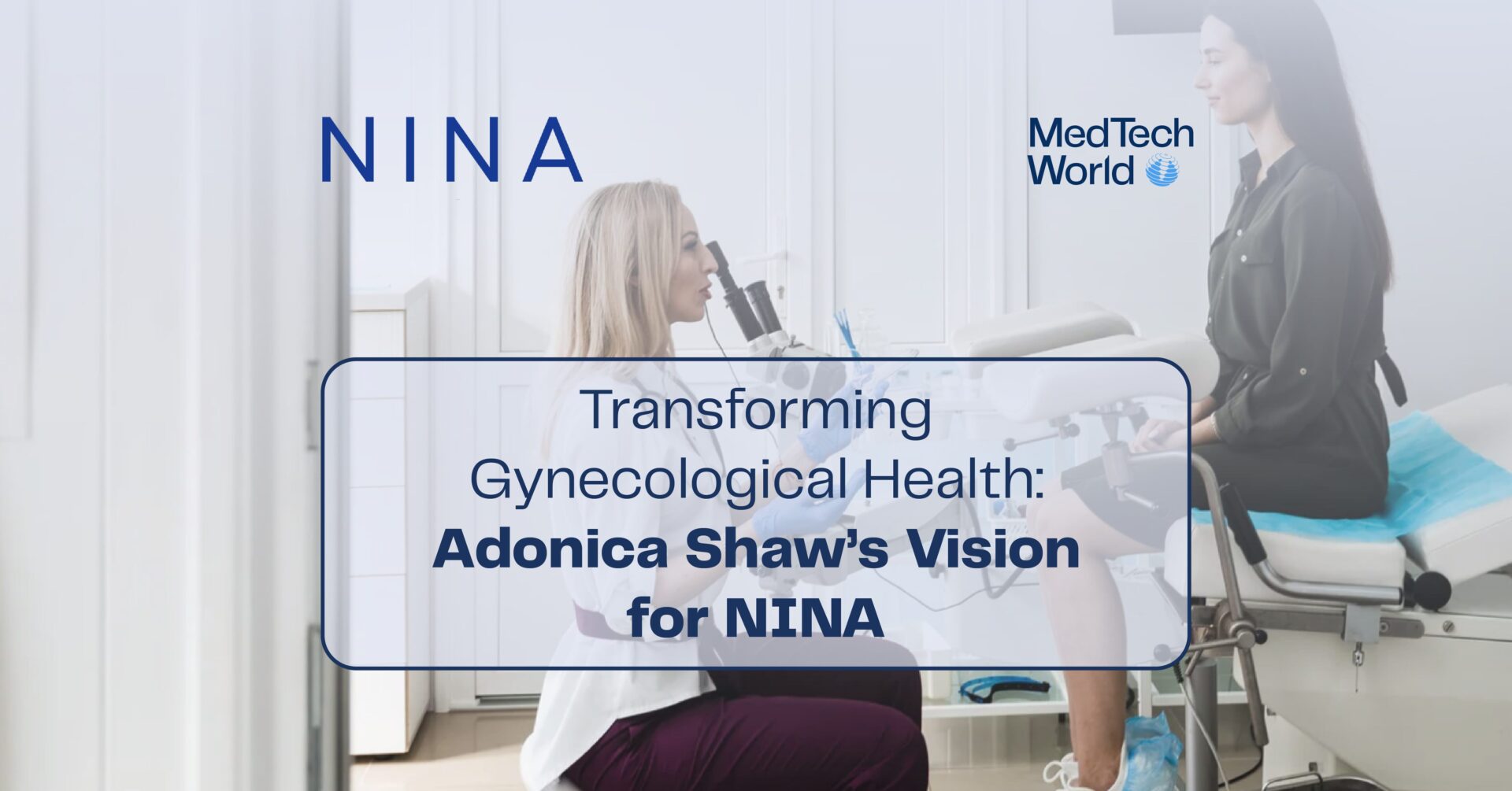
Wara Samar
21st February 2025
Transforming Gynecological Health: Adonica Shaw’s Vision for NINA
Despite rapid advancements in medical technology, gynecological tools have remained largely unaffected for years. NINA, an AI-driven platform developed by Wingwomen Technologies, aims to change that. We spoke with Adonica Shaw, Founder of Wingwomen, about the inspiration behind NINA, its potential impact on women’s health, and the challenges of pushing forward innovation in this space.
NINA’s journey began with an attempt in 2023 to patent a redesign of the vaginal speculum, a tool that has remained largely unchanged for over 200 years. “The traditional speculum is a known source of discomfort for patients, with studies showing that up to 70% of women report pain or anxiety during pelvic exams,” says Shaw. “This discomfort often leads to lower screening rates, with an estimated 25% of women skipping cervical cancer screenings due to fear or previous negative experiences.”
Despite its widespread use, the speculum’s outdated design has hindered innovation. “Plastic versions are available for as little as $3 to $10, making investors reluctant to fund redesign efforts,” she explains. Initially, Shaw shelved the project due to financial barriers, but a shift in focus reignited its potential.
A New Purpose for NINA
Rather than solely targeting clinicians, NINA evolved into a biodata collection tool for pharmaceutical companies and researchers. “This pivot opened doors to a different set of stakeholders—those seeking real-time, high-quality biodata to accelerate the development of drugs for endometriosis, PCOS, menopause, and pregnancy-related treatments,” Shaw explains. “For example, a device that could inform the development of better endometriosis treatments or create home-use cervical ripening suppositories could significantly advance women’s health.”
With its AI-driven biodata analysis, NINA is more than just a medical device—it is a tool designed to bridge the gap between clinical care and pharmaceutical research, enhancing patient experiences while driving forward innovation in drug development.

“The traditional metal speculum can be cold and painful, often leading to anxiety or avoidance of necessary care,” says Shaw. “NINA’s ergonomic design prioritizes patient comfort, while its AI capabilities collect data that can contribute to accelerating drug development in women’s reproductive health.” This means every exam has the potential to be part of a larger effort to improve care for all women.
Beyond Clinical Use: A Data-Driven Future for Women’s Health
Shaw envisions NINA’s biodata being integrated into digital health platforms, allowing patients to track their reproductive health over time. “This proactive approach encourages early detection and promotes preventive care,” she notes. “By contributing to larger datasets, NINA enables researchers to identify trends, develop new treatments, and accelerate drug development for conditions like cervical dysplasia, endometriosis, and infertility.”
Looking ahead, Wingwomen is focused on securing regulatory approvals and initiating clinical trials. “The next major milestones include FDA and MDR approvals and refining AI algorithms to ensure they provide accurate, actionable insights for healthcare providers,” Shaw explains. “We’re also exploring partnerships with pharmaceutical companies and research institutions to demonstrate NINA’s potential in accelerating innovation.”
Overcoming Challenges in Women’s Health Innovation
One of the biggest obstacles Shaw has faced is the historical underinvestment in women’s health technologies. “Many investors still view women’s health as a niche market, despite its profound impact on half the population,” she states. “We’ve had to advocate tirelessly, emphasizing the potential of innovations like NINA to improve outcomes and reduce healthcare disparities.”
Shaw believes AI and biodata collection can play a transformative role in gynecological and reproductive healthcare. “Technology like NINA could bring advanced diagnostics to pharmaceutical companies, helping to identify patterns and risk factors that might otherwise go unnoticed,” she says. “By collecting biodata, NINA could accelerate drug development and address critical gaps in women’s health research.”
Supporting the Advancement of Women’s Health Technologies
Shaw emphasizes that investors and healthcare professionals have a critical role to play in driving change. “Investors need to prioritize funding for women’s health innovations, recognizing their potential for both social impact and financial return,” she urges. “Healthcare professionals can support these advancements by advocating for the adoption of new technologies and collaborating with developers to ensure these tools meet real-world needs.”
By collecting biodata that could accelerate drug development, NINA represents a groundbreaking opportunity to address long-standing gaps in women’s health research. “I’m incredibly proud of the work we’re doing at Wingwomen. NINA has the potential to transform gynecological care and advance reproductive health innovation for generations to come,” Shaw concludes.





